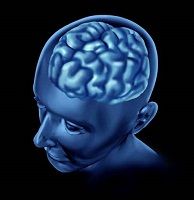Crime and Behavioral-variant Frontotemporal Dementia
To the legal and criminal justice system, people with behavioral-variant frontotemporal dementia (bvFTD) are responsible for any moral or legal transgressions questions that assumption.

The legal and medical professions can differ in their assessments of moral responsibility.
To the legal and criminal justice system, people with behavioral-variant frontotemporal dementia (bvFTD) are responsible for any moral or legal transgressions.
In an abstract to be presented April 23 at a poster session on policy and ethics, Richard Darby, MD, a Boston, MA neurologist reports on such patients.
From 45% to 59% of patients with bvFTD have committed an illegal action, compared with about 4% to 7% of patients with AD, Darby wrote.
He believes these patients “challenge the assumption that moral knowledge and conscious reasoning are sufficient for normal moral judgments.”
Such patients “have intact knowledge of moral rules and are able to reason through the negative consequences of their actions” he writes. But they have deficits in theory of mind, affect-based decision-making, social emotions and have absnoral performance on hypothetical moral dilemmas.
Knowing that their actions will have consequences is grounds is the legal benchmark for being held responsible for illegal or immoral acts. But Darby writes that bvFTD patients, because of having impaired social cognition, may not be able to change their behavior even though they know it could get them in trouble. They are not “reason-responsive,” he writes.
“Reason-responsiveness may more appropriately reflect neuropsychological data regarding moral decision-making and better determine how to address responsibility I bvFTD patients, “ he argues.
Patients with bvFTD are ill, but “do not have diminished responsibility according to the current legal definitions.”